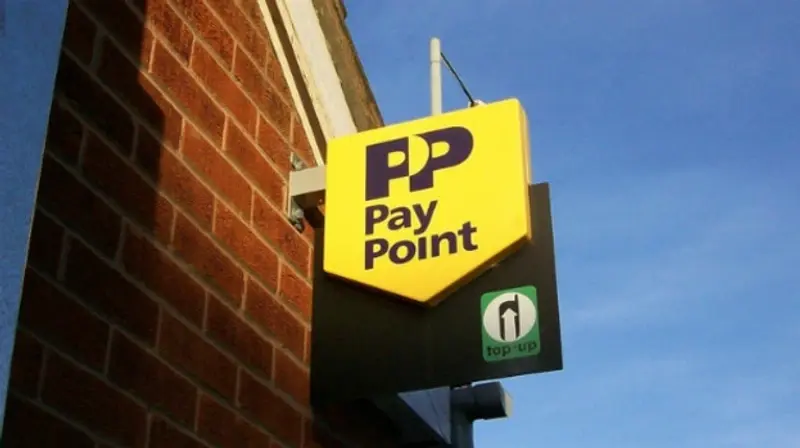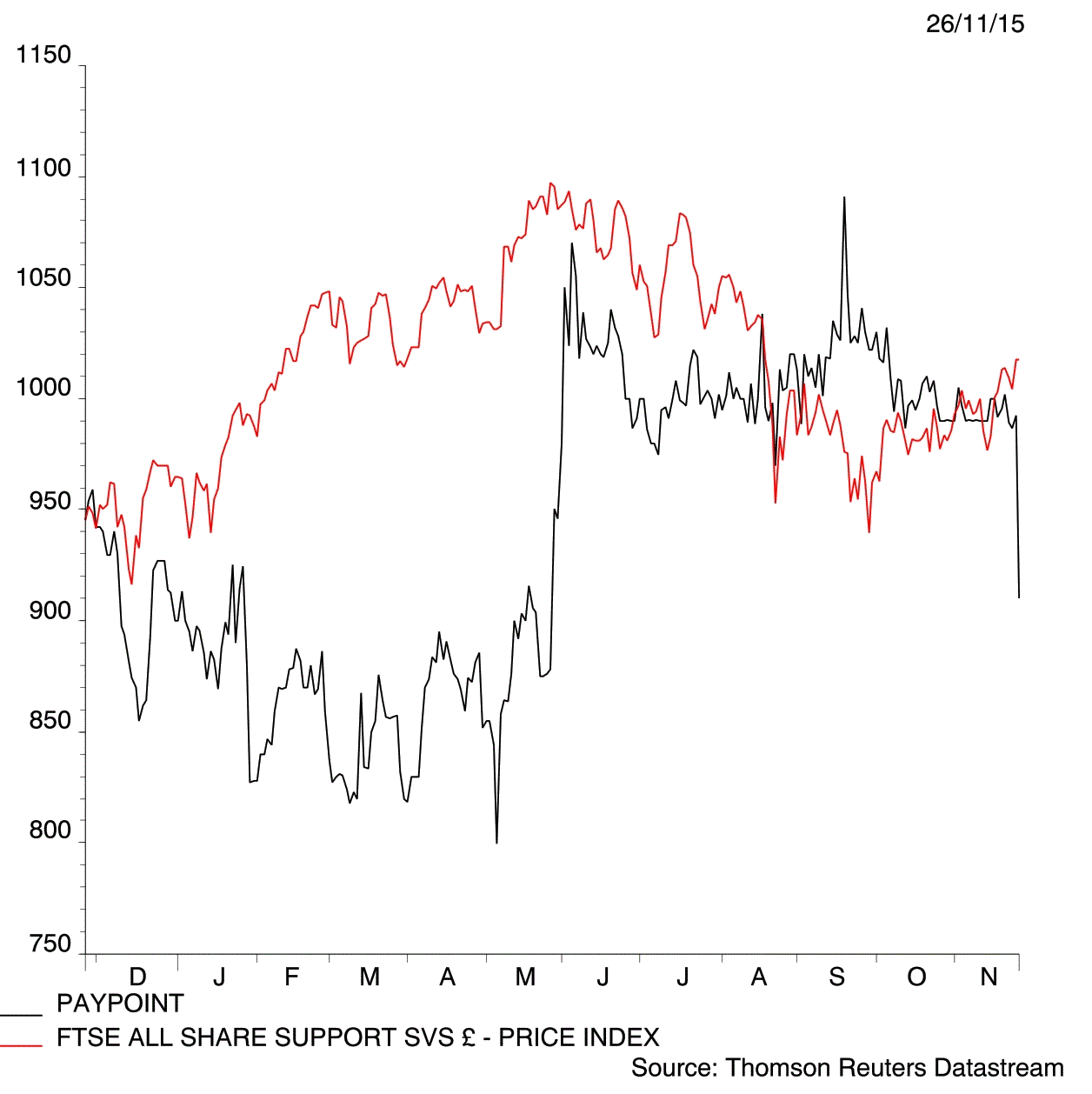
Stalling discussions with potential buyers of Paypoint’s (PAY) mobile and online payments business mean market expectations for a special dividend may have to be scaled back.
Analysts at Numis previously forecast a full-year pay-out of 73.8p a share helped by disposal proceeds but those forecasts could now be in jeopardy.
Offers for the online and mobile unit, which provides parking apps, number plate recognition systems and penalty charge notices, have not met expectations, Paypoint management says.
Shares in the Welwyn Garden City-headquartered outfit trade 9.2% lower at 901p.
Adding to investor concern is a price hike from parcels joint venture partner Yodel, which provides the logistics for a click and collect-style service offered by retailers which use Paypoint’s systems.
The service, Collect+, grew transaction volumes by 18.1% to 9.9 million in the six months ending 30 September 2015 but reported a loss of £797,000.
‘We continue to discuss with Yodel the future of the joint venture and the proposed increases in charges put forward by Yodel,’ says chief executive Dominic Taylor.
‘A portion of these charges have been allowed pending the outcome of these discussions, which has caused the adverse impact on profitability in Collect+.’
Updates on disposal talks as well as progress on the joint venture negotiations are expected at or before a full-year results update expected in May next year.
Underlying earnings per share, which excludes the non-cash write-down of the mobile and online unit, declined 4.6% to 24.8p. But the dividend was hiked 14.5% to 14.2p.
‘Overall, we expect to make further progress across the business, with trading since 30 September in line with our expectations,’ says the statement.
‘Our dividend increase anticipates double digit growth in the dividend for the year as a whole and reflects our confidence in the business and its long term prospects.’
Analysts at Numis say the results were ‘disappointing all round’.
‘We believe the core business is a cash cow (low growth, high margin), having previously (pre mid-2000s) been a growth business,’ writes analyst David McCann.
‘Management strategy however still appears to be focussed on growth from new areas, rather than pure organic growth of the core retail capability and/or return of capital to shareholders.
‘We believe management has failed to achieve the same success (as measured by return on capital) on investments made in recent years, compared to the original business.
'The return on capital from M&O, once it is sold, is likely to be indicative of this. We would therefore be naturally cautious of any future M&A activity.'





